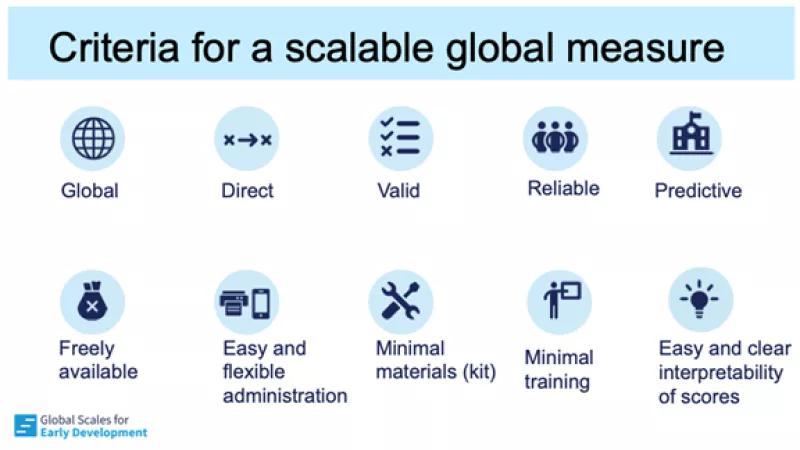About the GSED
The WHO recently introduced the Global Scales for Early Development (GSED), a groundbreaking tool designed to measure development of children from birth to three years of age. The GSED is unique in its equitable, accessible, and affordable approach, benefiting children across language groups and cultures.
The first years of life are crucial for a child’s development. However, current tools to measure child development are expensive and require extensive translation and adaptation, making them inaccessible to many. The GSED aims to overcome these barriers, allowing for accurate measurement and comparison of child development across diverse global settings.
Watch WHO's GSED video here: Measuring early childhood development: gathering data to improve support for young children
Our Mission
By implementing the GSED at UCSF, we strive to:
- Understand child development: Determine how children develop when they experience minimal environmental and health limitations.
- Set global standards: Use this information to establish benchmarks for monitoring child development worldwide, so that all children worldwide have equitable access to excellence in neurodevelopmental assessment.
- Support interventions: Provide data to help policymakers, and researchers evaluate programs, policies, and environmental changes, ensuring resources are allocated effectively to support healthy development.
